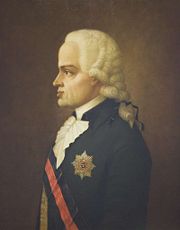About Yaroslavl State University
 Yaroslavl State University is one of the youngest and at the same time one of the oldest universities in Russia. Being born twice - in 1918 and in 1970, it considers the beginning of its history to be the year of 1803, when Alexander I at the instance and on the money of the famous manufacturer and patron P.G. Demidov founded the Academy of Higher Sciences in a provincial city on the Volga river, later changed into Demidov Law Lyceum, and then – Yaroslavl State University.
Yaroslavl State University is one of the youngest and at the same time one of the oldest universities in Russia. Being born twice - in 1918 and in 1970, it considers the beginning of its history to be the year of 1803, when Alexander I at the instance and on the money of the famous manufacturer and patron P.G. Demidov founded the Academy of Higher Sciences in a provincial city on the Volga river, later changed into Demidov Law Lyceum, and then – Yaroslavl State University.
Today P.G. Demidov Yaroslavl State University is the leading higher educational institution of the Upper-Volga region with 7800 students. It is a classical multi-discipline educational institution preparing students in 70 specialities and directions (preparing bachelors and masters).
The university contains two institutes: Institute of Foreign Languages, Institute of State, Municipal and Corporate Management and ten faculties: the Law Faculty, the Mathematics Faculty, the Physics Faculty, the Economics Faculty, the History Faculty, the Faculty of Information and Computer Science, the Faculty of Socio-Political Sciences, the Psychology Faculty, the Biology and Ecology Faculty, the Philology and Communication Faculty. In addition to classical five-year special education university have the opportunity of providing education according to the programmes of preparing bachelors and masters.
The teaching process is provided by a professional team of teachers, most of them having the degree of candidates and doctors of science. One can continue education at a post-graduate course for candidates and doctors of science in more than 40 specialities. Dissertations are defended in candidates and doctors’ councils at the university.
The university has the University College teaching in the area of secondary vocational education in nine specialities.
The development of fundamental science was always the top-priority task for the university. Today it occupies the leading position both by the scientific staff qualification and by the volume, breadth and results of scientific research. The main themes of researches, developed by the university, are funded from the federal budget, Russian state foundations, international organizations. The university has recognized scientific schools in many specialities. The university scientists regularly participate in scientific conferences, symposiums and workshops of different levels. Students and post-graduates take an active part in scientific research.
The university is actively involved in the internalization of higher education. It has a number of long-term partnerships with higher educational institutions of EU (University of Jyvaskyla, University of Poitiers, Sapienza University of Rome), NIS countries (Kazakh National Pedagogical University named after Abay, Minsk Institute of Modern Technologies and Marketing). Recent agreements for cooperation have enlarged the list of international partnerships up to over twenty. Forms of cooperation include student exchange, teacher probations, business and study visits. International projects under the EU programmes Tempus and Erasmus promote academic mobility and develop joint academic programmes.



